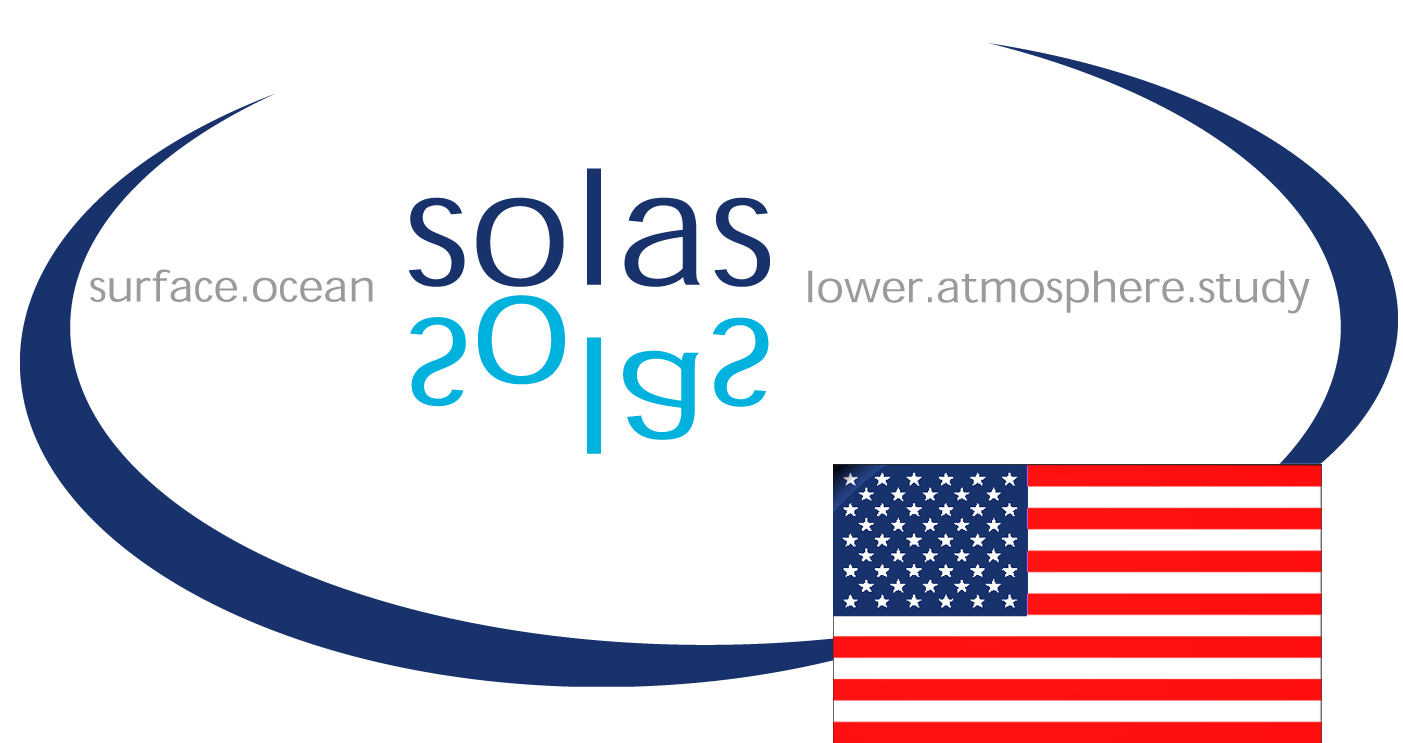 ©2020 Biological and Chemical Oceanography Data Management Office.
©2020 Biological and Chemical Oceanography Data Management Office.Funded by the U.S. National Science Foundation
The Surface Ocean Lower Atmosphere Study (SOLAS) program is designed to enable researchers from different disciplines to interact and investigate the multitude of processes and interactions between the coupled ocean and atmosphere.
Oceanographers and atmospheric scientists are working together to improve understanding of the fate, transport, and feedbacks of climate relevant compounds, and also weather and hazards that are affected by processes at the surface ocean.
Oceanographers and atmospheric scientists are working together to improve understanding of the fate, transport, and feedbacks of climate relevant compounds.
Physical, chemical, and biological research near the ocean-atmosphere interface must be performed in synergy to extend our current knowledge to adequately understand and forecast changes on short and long time frames and over local and global spatial scales.
The findings obtained from SOLAS are used to improve knowledge at process scale that will lead to better quantification of fluxes of climate relevant compounds such as CO2, sulfur and nitrogen compounds, hydrocarbons and halocarbons, as well as dust, energy and momentum. This activity facilitates a fundamental understanding to assist the societal needs for climate change, environmental health, weather prediction, and national security.
The US SOLAS program is a component of the International SOLAS program where collaborations are forged with investigators around the world to examine SOLAS issues ubiquitous to the world's oceans and atmosphere.
» International SOLAS Web site
US-SOLAS (4 MB PDF file)
Other SOLAS reports are available for download from the US SOLAS Web site

Principal Investigator: William Miller
University of Georgia (UGA)
Co-Principal Investigator: Leanne Powers
Chesapeake Biological Laboratory (CBL)
Contact: William Miller
University of Georgia (UGA)